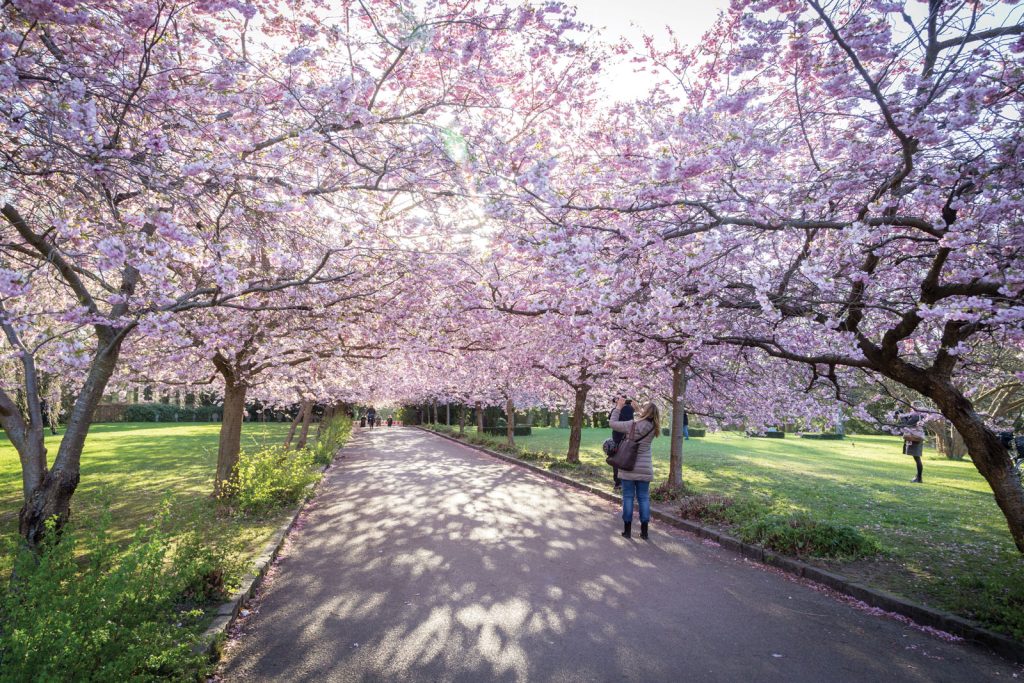Copenhagen’s youngest cemetery is also the Danish capital’s most progressive. Bispebjerg Cemetery, established as a Christian resting place in 1903 and known best for its blooming cherry trees in spring, has special areas for atheist, Swedish, Russian, Catholic, and Muslim graves. Buddhism is the latest tradition to get its own section in the cemetery.
Ole Nordstrom, chair of the Buddhistisk Bisættelses Forening (Society for Buddhist Burials), said that planning for the 108-square-meter space, which includes a columbarium and stupa, dates as far back as 1993. The first step was getting Buddhism recognized as a religion in Denmark, Nordstrom told Tricycle, and the initiative was inspired in part by his parents’ wishes to receive a Buddhist burial. The urn repository was dedicated three years later.
Construction of the cemetery’s stupa, which includes sacred objects from the 16th Karmapa, the 17th Karmapa Ogyen Trinley Rinpoche, and Tenga Rinpoche as well as stones from monasteries in Bodhgaya and Tibet, was completed in 2018. That October three monks from Benchen Monastery in Kathmandu dedicated the sacred structure for the official opening. The Tibetan Buddhist teacher Khandro Rinpoche is also planning a stop this summer to offer her blessings, Nordstrom said.
The cemetery section is open to Buddhists of all traditions for burial—even “people who feel Buddhist and wish to be buried here are welcome,” Nordstrom said. Copenhagen administrators believe this is the country’s first Christian cemetery to house a Tibetan Buddhist structure.
Thank you for subscribing to Tricycle! As a nonprofit, we depend on readers like you to keep Buddhist teachings and practices widely available.
